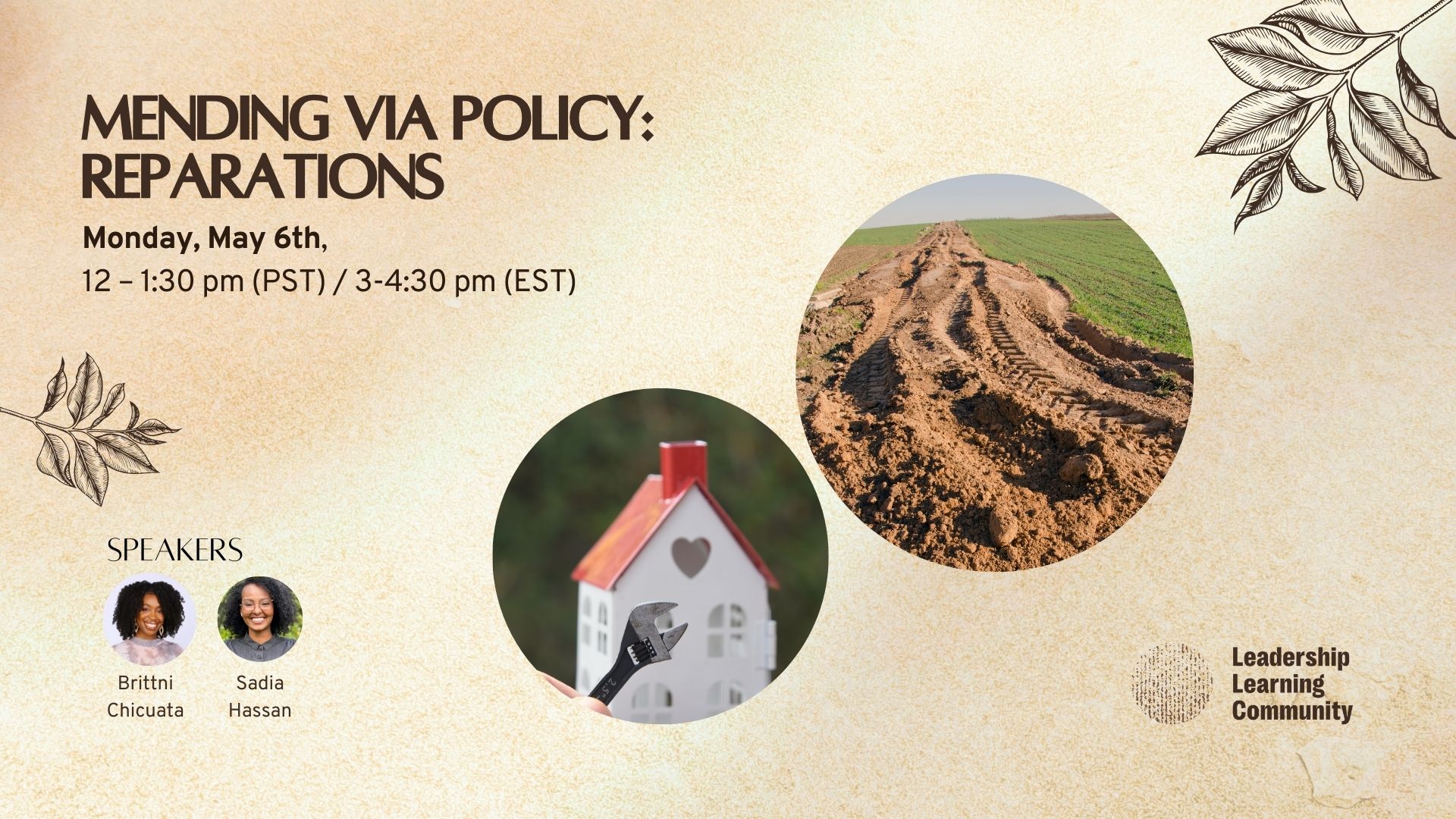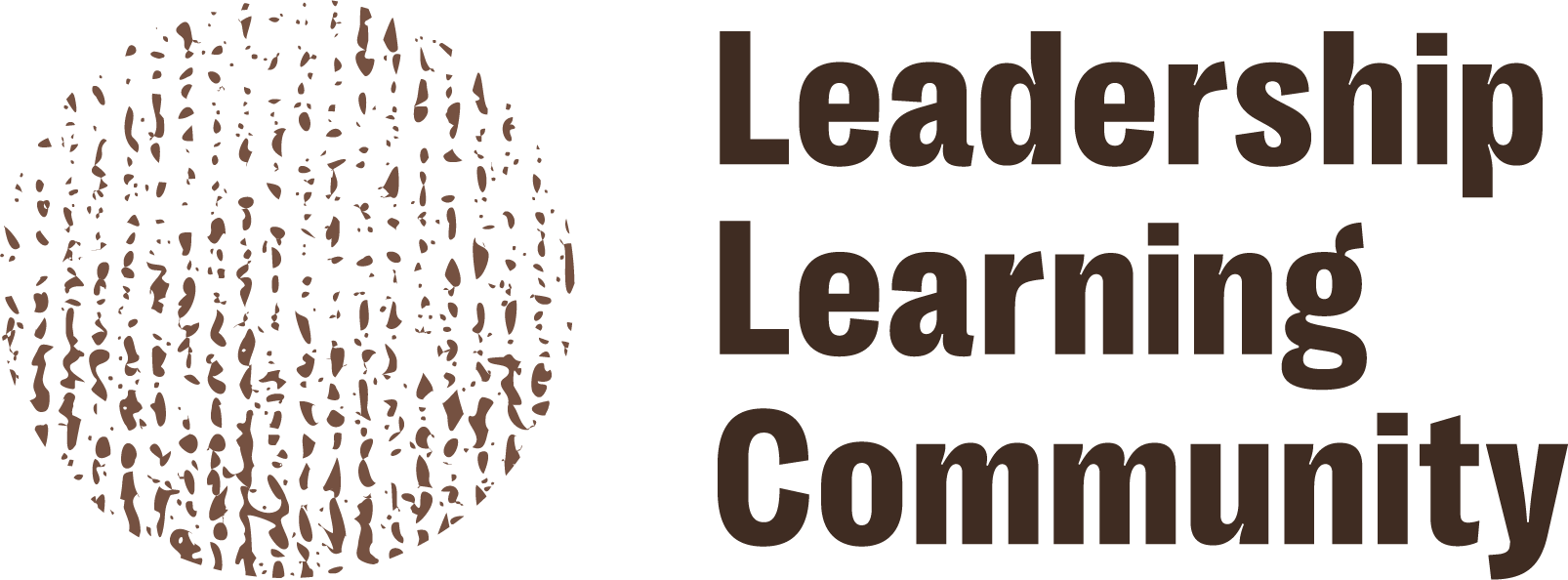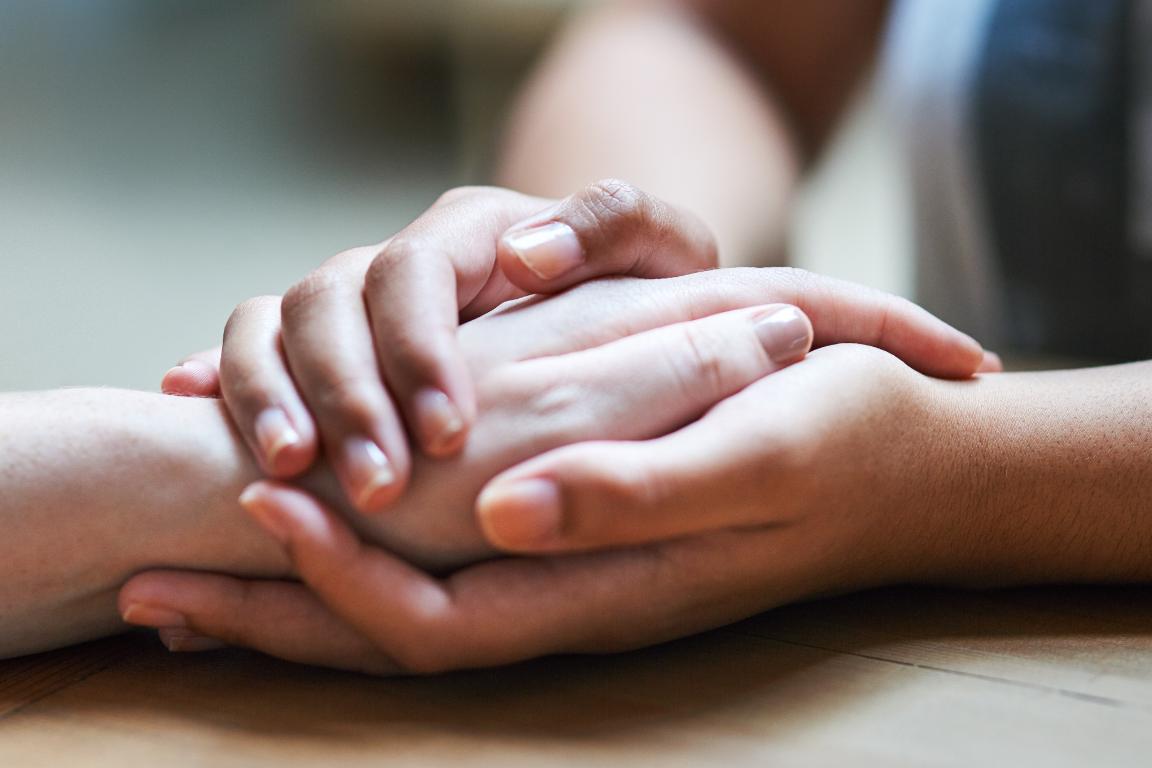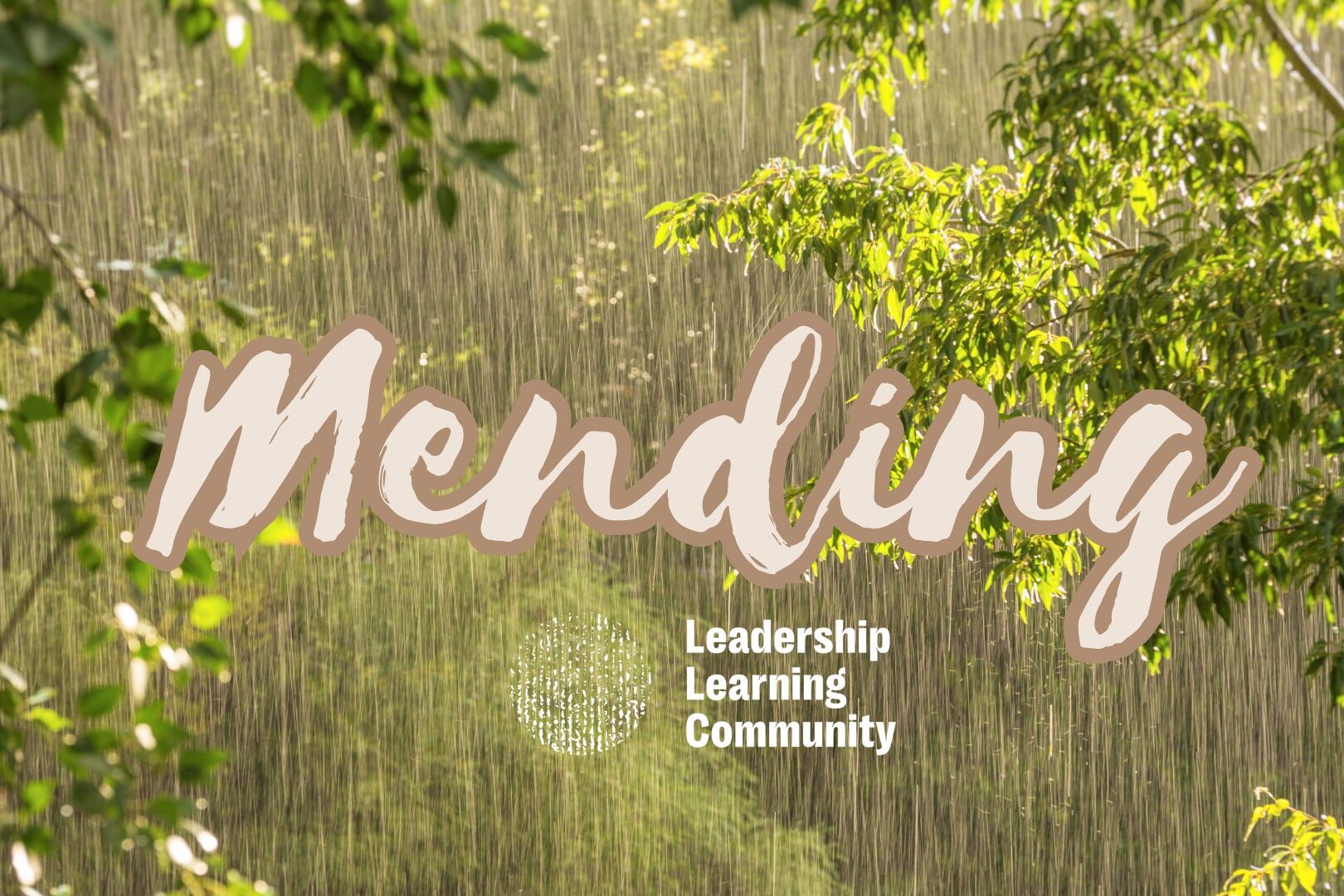
On May 6, Leadership Learning Community hosted Mending Session #4: Mending via Policy, Reparations with Brittni Chicuata. It was healing to be conversing about the power we as community members hold and how to mend our relationship with policy.
When we were dreaming up our contribution to the Mending Series. We wanted to highlight how policy is an essential part of mending, specifically as an avenue to repair structural harm to groups who have been historically disenfranchised. One example of a reparative policy is reparations. Last year in California, a pioneer reparations task force voted on more than 200 recommendations on legal, medical, and monetary forms of restitution for descendants of slaves. Another is indigenous land return which hopes to return acres of land back to the care of indigenous caretakers through land trusts.
The path toward meaningful progress and transformative social change is filled with obstacles, no doubt. As we grapple with what it means to witness reparative policies become structurally defunded, we invite you to think about some of the questions that came up for us as we prepared for this session:
“How do we mend our relationship to power and policy as a means of transforming our communities?”
“How do we keep hope alive and recommit to our shared visions of a better world?”
It’s clear that what the world needs right now is mending. It’s a practice we must tend to on multiple levels: at the personal level, as we saw in our second mending session where we engaged in a Japanese mending and embroidery practice; at the community level to heal divisions, as we saw in our third mending session, a conversation on intergenerational power sharing; and especially at the level of governance to mend the divide between policy and material change, as we learned from the Director of Economic Rights at the San Francisco Human Rights Commission, Brittni Chicuata.
We want to reiterate that the practice of mending is more than healing individual relationships; it’s about creating communal understanding and recommitting materially to address injustice. We believe repair, a practice rooted in indigenous healing and accountability, is key to this work.
Brittni left us with some key learnings:
- Rebuilding Trust: When policies fail or promises are broken, community members and leaders become the bridge to mend trust and heal together. Empowering community members to advocate for themselves and challenge authority figures can rebuild trust, foster change, and be a transformative experience for some.
- “Policy is much more dynamic than just taking – in just an exclusionary practice – it can also heal and repair.” – Brittni.
- “When we come together as a collective, share our stories, we are not alone in this – we can make our experience different and challenge power” – Brittni.
- Connecting to Indigenous Practices: Indigenous practices, such as those surrounding maternal health and collective decision-making, offer valuable healing and policy development approaches. For example, challenging practices that separate mothers from their communities after childbirth. We should connect and promote ancestral practices, prioritizing rest and collective support after birth.
- “For the communities that still like show up all the time with like the supernatural level of faith in a better outcome – even though they’re operating in a system that has messed them over time and time again – that that’s like a really indigenous and spiritual way of approaching the work.” – Brittni.
- Assuming Ignorance, Not Ill Intent: Approaching policymakers with an open mind and educating them about the community’s needs.
- Reparations are not solely economic: It involve mending and healing relationships. Incorporating indigenous practices into policymaking can lead to more holistic and effective solutions in the ongoing fight for reparations. We can create a more just and equitable future by connecting policy to lived experiences and ancestral wisdom.
Below are some of the appreciations that were shared in the chat:
- “Grateful for the LLC Team, Sadia, and Brittni for holding this space. I will take away the vision of luxury for our communities. I will also be processing my relationship with hope and how to mend my own faith in policy.” – Vera.
- “I am grateful for you demystifying policy by linking it to humanity 🙏🏾”- Sree.
- “I look forward to researching Bear Coon (I hope I got that right) and to learn more about Brittni’s work 🙂 I am so grateful for all that is shared. I look forward to going back and rewatching these Mending Series Recordings. There is so many layers of learning there!!!” – Mehrangiz.
Related Posts
September 30, 2024
The Healing Rhythm of Running
September 30, 2024



